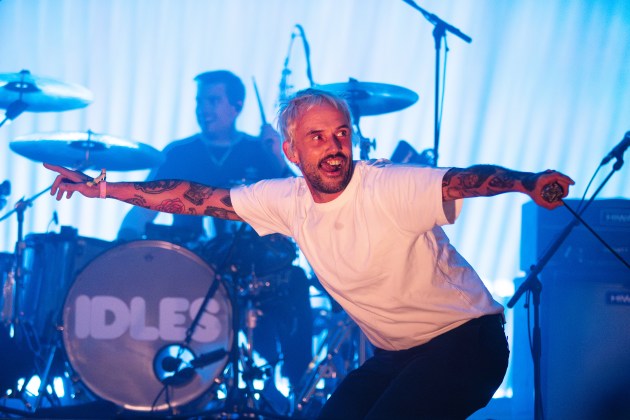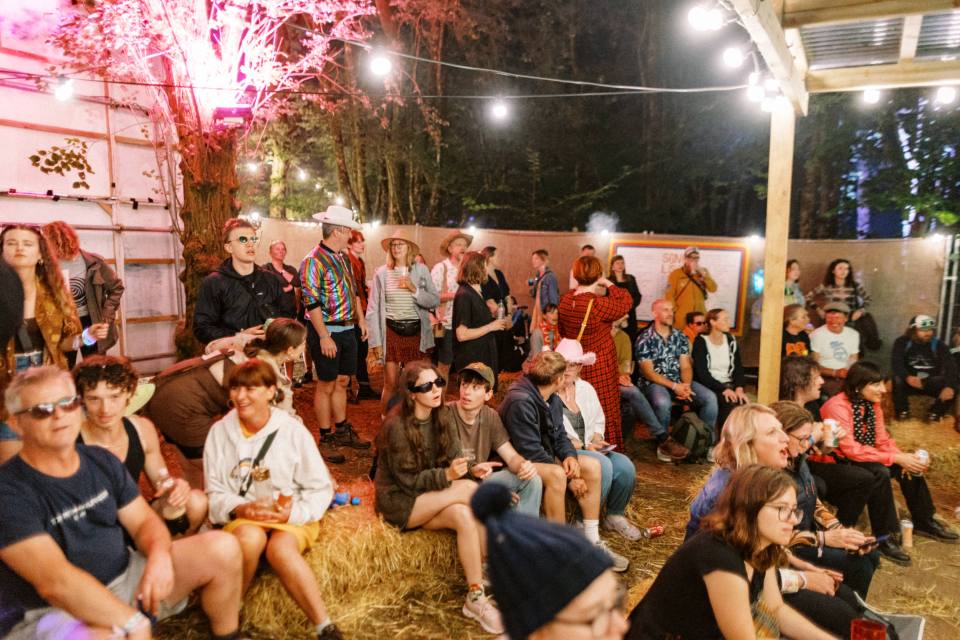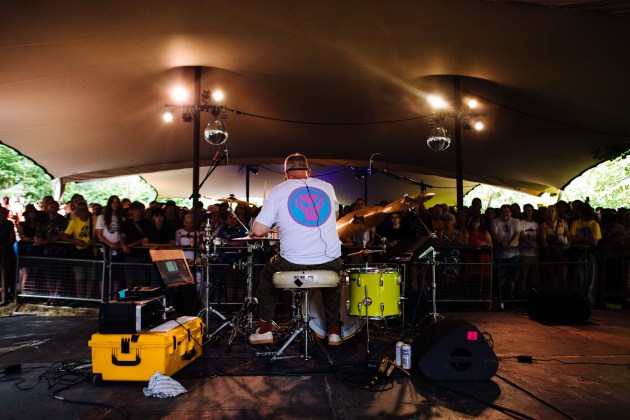Why End of the Road is the best indie music festival

Vibes and music don’t get better than this: Lucy Kenningham reviews End of the Road festival
“You can write your reviews but we ain’t gonna read them!” yelled Joe Talbot of Idles on Friday night. Well, sorry Joe. You were too good not to review.
The screechy, never-not-wired Bristolian band – who sound like warriors who just got released from a cage – boomed out of End of the Road’s mainstage on Friday night. Tinged with rage and pain, Talbot dedicated songs to his mother (The Wheel – about cyclical, generational alcoholism) and other friends and punctuated the set with regular chants of Viva Palestina mixed with their trademark anti-fascist lyrics oftentimes parodying toxic masculinity. The set burst with bangers – ranging their albums (though focusing on the best: CRAWLER and Joy As An Act of Resistance) to hit up their best singles like Never Fight a Man with A Perm and the hypnotic, crooning yet-still-heavy ballad The Beachland Ballroom and Car Crash.

But even if you hate Idles (where’s your soul?), people don’t really go to EOTR for the headliners. Don’t get me wrong – there were bigger names, including Grammy-Award-winning English Teacher and ex-Pulp man, he-of-the-Parkhill-estate-musical Richard Hawley. Indeed, in recent years their headline game has levelled up (psychedelic mavericks King Gizzard and the Lizard Wizards played last year; indie dance favourites Hot Chip the previous). Yet EOTR would be magical without the big names.
There simply aren’t many independent music festivals left of this quality.
Of course, you could say the same about Glastonbury EOTR occupies a special space having melded together impeccable artist taste, without fear to invite eccentric acts (how about Molly Lewis, the world’s most famous whistler or audiovisual duo Mermaid Chunky, who “bathe in milkmaid serenity and improvised chaos”) along with a small, community feel.

The setting slaps
Day and night there are enchanting art installations, workshops and activities (no booking required). From rubber stamp printing to spoon carving, games of rounders to ceramic slug making. A marble run, chess, skipping, and giant jenga make for an Alice-in-Wonderland-esque adventure. The Woods never fail to enchant, with its hidden spots – the Croquet Lawn a personal favourite.

It’s full of surprises
Another formidable aspect of EOTR are the secret sets: not only did electronic favourites Floating Points deliver a surprise set on Sunday night but so did Altin Gun who were so good they managed to whack out another 1,500 steps from City A.M. despite us being on the cusp of collapsing.
Crowd control
Staying on the small side – just 17,000 punters flock to the site each year – allows EOTR to retain the informal, magical essence of a festival. You’ll bump into friends you made in the mosh pit, the stamp-making installation man will remember the fish print you made last year, you’ll catch sight of artists wandering around the Woods. You can sidle from stage to stage without planning things. You can move from each within 10 minutes, lending the spontaneity and chill-ness that is everything a music festival ought to be (and is so often lost when they grow in size). Peacocks roam around the Victorian pleasure gardens and the woods are lit up in beautiful shades of red, pink and maroon. Where else would the founder do a personal DJ set in a prime spot on Saturday night (it’s always a bit of a mess – but that’s part of the fun).

Keeping it weird
Traditionally an indie music festival dominated by guitar heavy bands when formed by Simon Taffe in 2006 (aged 25, running a building and decorating business, he sold his house to finance the first iteration), the festival has expanded organically to feature more electronic music and better late night stuff, which runs until 3am (as does the infamous karaoke pit: pick your poison) and more world music. This year Lebanese collective SANAM and Ghanaian Florence Adooni shone. A formidable aspect of EOTR are the secret sets: dancefloor favourites Floating Points popped unexpectedly on Sunday night.
Key to making this work is the little red book of the whole festival. The first thing you do is buy a programme. In it, you will discover the bible of acts playing around the site over the weekend. Whoever writes these things is a genius at making almost every artist sound like an absolute must see. Baxter Dury, it reads, “is not your friend. He’s trying to be though”.
Or jellyskin. “Seafaring duo Will Ainsley and Zia Larty-Healy along with their bank of bastardised drum samples and found sounds, jellyskin mash together abrasive techno, sinewy electronica, industrial beats and lush harmonies, drawing on influences from sixties girl groups and the chansonnier tradition to pounding electro, PC music and kosmische and coming out the other side with something almost unearthly in its brilliance.” This description unsurprisingly drew a pulsating crowd so massive that people were hanging out the sides – yet the seafaring duo only have 2,000 monthly listeners on Spotify. This sort of reception isn’t rare at EOTR and is a lifeline for upcoming artists in a brutal music scene.
Another standout was COLOSSAL SQUID, a project by Adam Betts who has drummed for the likes of Squarepusher and Jarvis Cocker. His is a mesmerising fusion of jungle, Indonesian gabba and glitches. Punters packed out The Boat stage for his set – despite his similarly small online presence – and it was one of the best of the entire weekend. With just a drum kit on stage, he whipped up huge beats gaining a reception more appropriate for 4am at a rave than 5pm on a Friday afternoon.

There’s something special about End of the Road. Undoubtedly, the festival could have chosen to ramp up the size from the 17,000 people that attend but it has chosen to occupy this mid-sized space. It hasn’t – and in doing so it’s preserved the ethereal magic of communal living, wonder and the ecstasy of breakthrough music. There aren’t many independent music festivals left of this quality. This one is a winner.